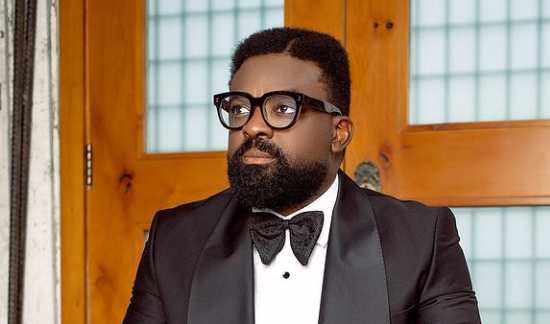Kunle Afolayan Discusses Industry Challenges, Female Cinematographers, and African Storytelling in Exclusive Interview

Nigerian actor, director, and filmmaker Kunle Afolayan recently shared his insights into the Nigerian film industry during a conversation with Legit.ng. The discussion came at the launch of the third edition of the Reel Circle: Directing Cinematography Workshop on November 12, 2024, at the Kunle Afolayan Production (KAP) Film and Television Academy in Lagos.
Afolayan, a seasoned veteran in Nollywood, touched on several critical topics, including the underrepresentation of female cinematographers in the industry and the portrayal of African stories by American filmmakers. He also shared his thoughts on the future of filmmaking and the training of new talents in the ever-evolving Nigerian film scene.
The Gender Gap in Cinematography
One of the key topics Afolayan addressed was the challenge of the limited number of female cinematographers in Nigeria’s film industry. He attributed this to the physical demands of cinematography, which often involve lifting heavy equipment and moving quickly on set. Afolayan remarked, “Cinematography is like a man’s work because they carry things, they lift things, they move like men. You have to be agile. But if you want to slay with long nails, you can’t do that.”
The filmmaker noted that many female cinematographers who have broken into the field tend to exhibit qualities traditionally associated with masculinity, stating, “That is why most of the female cinematographers you see are tomboys or people who really have the energy to do so.” However, he also emphasized that cinematography is just one of many technical areas in filmmaking, and many women still prefer acting or other roles in front of the camera.
Americanized Narratives and African Stories
Afolayan also shared his frustrations regarding how American filmmakers often take the lead in telling African stories, citing the film The Woman King as an example. He strongly rejected the notion that African stories are only validated when told by American filmmakers. “There’s this facade that it has to be done by the Americans before it makes sense, and it’s a bullsh!t narrative,” Afolayan stated.
He pointed out inconsistencies in The Woman King, particularly in how characters, such as Angelique Kidjo, portrayed a mixture of African and American accents. He also criticized the inaccurate portrayal of the Oyo people in the film, describing them as being depicted with Taliban-like attire, which he believed was a misrepresentation.
Afolayan stressed that if he were involved in a similar project, he would insist on influencing the aesthetics to reflect the true culture and traditions of his homeland. “If I’m asked to talk like a Kenyan playing a Nigerian, I will question why and probably turn it down,” he added.
Training the Next Generation of Filmmakers
As a mentor and educator, Afolayan remains committed to nurturing new talent in the film industry. The Reel Circle: Directing Cinematography Workshop he hosted in partnership with the United States Embassy aimed to equip over 20 participants with the skills needed to succeed in the competitive world of cinematography. During the workshop, Afolayan shared his expertise, emphasizing the importance of both technical skill and artistic vision.
This initiative aligns with Afolayan’s belief in the need to improve the Nigerian film industry through better training and education for aspiring filmmakers. “We are making an effort to get things right,” he explained. “People should give us credit for trying to ensure that certain aesthetic things are correct.”
Looking Ahead: The Future of Nollywood
Kunle Afolayan’s commitment to the Nigerian film industry remains unwavering as he continues to push boundaries. With a growing legacy that includes accolades such as the 2023 AMAA awards for his film Anikulapo, Afolayan’s next career chapter looks set to further solidify his status as one of Nollywood’s top filmmakers.
Afolayan expressed his gratitude for the recognition he has received and his ongoing dedication to improving the filmmaking landscape in Nigeria. “It’s an honor to be able to contribute to this industry and help shape its future,” he said.
As Afolayan continues to mentor the next generation and advocate for the authenticity of African stories, his influence within Nollywood will only grow, marking him as a crucial figure in the evolution of the industry.




